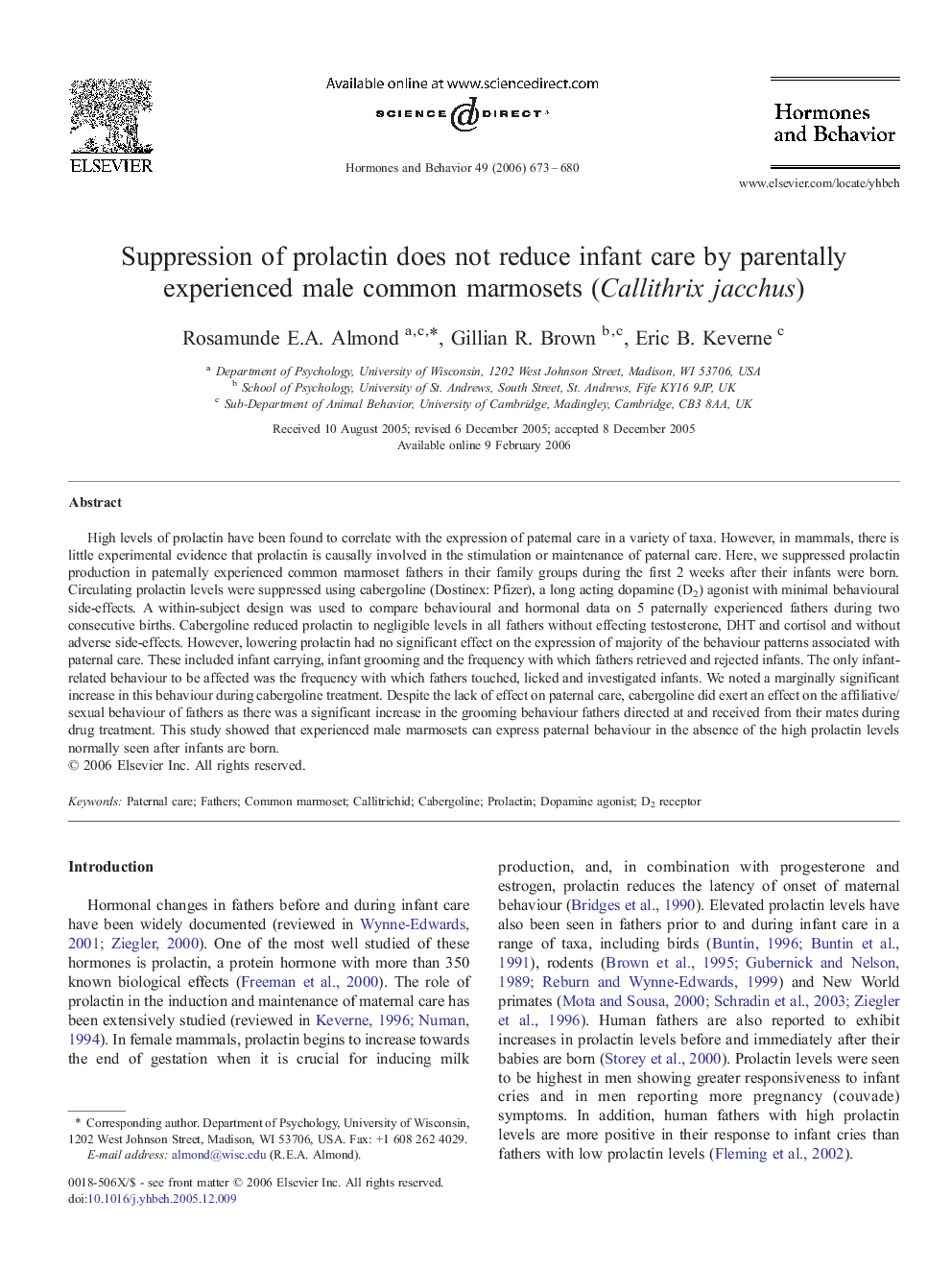| Article ID | Journal | Published Year | Pages | File Type |
|---|---|---|---|---|
| 323014 | Hormones and Behavior | 2006 | 8 Pages |
High levels of prolactin have been found to correlate with the expression of paternal care in a variety of taxa. However, in mammals, there is little experimental evidence that prolactin is causally involved in the stimulation or maintenance of paternal care. Here, we suppressed prolactin production in paternally experienced common marmoset fathers in their family groups during the first 2 weeks after their infants were born. Circulating prolactin levels were suppressed using cabergoline (Dostinex: Pfizer), a long acting dopamine (D2) agonist with minimal behavioural side-effects. A within-subject design was used to compare behavioural and hormonal data on 5 paternally experienced fathers during two consecutive births. Cabergoline reduced prolactin to negligible levels in all fathers without effecting testosterone, DHT and cortisol and without adverse side-effects. However, lowering prolactin had no significant effect on the expression of majority of the behaviour patterns associated with paternal care. These included infant carrying, infant grooming and the frequency with which fathers retrieved and rejected infants. The only infant-related behaviour to be affected was the frequency with which fathers touched, licked and investigated infants. We noted a marginally significant increase in this behaviour during cabergoline treatment. Despite the lack of effect on paternal care, cabergoline did exert an effect on the affiliative/sexual behaviour of fathers as there was a significant increase in the grooming behaviour fathers directed at and received from their mates during drug treatment. This study showed that experienced male marmosets can express paternal behaviour in the absence of the high prolactin levels normally seen after infants are born.
